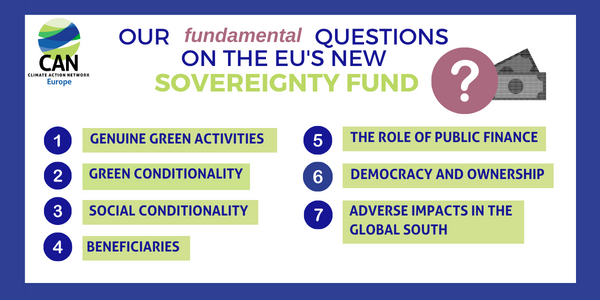In reaction to the Inflation Reduction Act in the United States (IRA), the European Commission announced an upcoming Net Zero Industry Act and a loosening of the State aid framework. It would establish new goals for European cleantech projects until the end of the decade, with particular emphasis on the wind, heat pumps, solar, clean hydrogen, and energy storage industries. For European businesses to remain competitive in light of the subsidies for the US economy and to avoid a relocalisation of private investments in so-called green economic activities towards the United States, the Commission is expected to propose a relaxation of state aid rules as well as a new European sovereignty fund.
The relaxation of state aid rules will allow Member States who have sufficient resources, to offer tax breaks for green industry. So far, most state aid to companies has been allocated by Germany and France and a number of Member States do not have the financial resources to massively support their private sector. Therefore, in order to protect fair competition within the internal market, a new EU fund is being proposed to support industries in countries which don’t have the fiscal space to provide state aid to businesses. The details of how such a sovereignty fund would work and how it would be funded are still being debated, while some Member States have been reacting negatively to what is being proposed.
The problem with the approach that is being proposed is that it is completely one-sided: it suggests that through the mere provision of additional subsidies to industries, the latter would transition to sustainable practices, while ignoring the crucial role of regulation to align incentives, the roll-out of existing technologies (e.g. heat pumps and rooftop solar, transport infrastructure), as well as the additional public investment support needed on the demand side, including households.
Indeed, successfully greening our industry requires first and foremost an adequate regulatory framework, providing necessary sticks to the carrots of public subsidies. Progress there is far too slow, from shifting private investments away from damaging economic activities to banning fossil fuel subsidies, from robust corporate accountability rules to ensure companies don’t damage climate and the environment to green progressive taxation, from products eco-design rules to setting reduction targets for resource and energy consumption. Even worse: for the moment, massive subsidies are provided to carbon intensive industries without the necessary safeguards and rules to ensure they deliver on social and environmental objectives.
It is clear that there is a huge investment gap for climate action (mitigation and adaptation) and the just transformation of our economies. It has been assessed at 520 bn euros a year till 2030 by the European Commission for the EU as whole, while a CAN Europe report has estimated investment needs and investment gaps for 8 individual Member States, pointing that the investments mobilised to this date via EU funds are insufficient to fill investment needs for ambitious National Energy and Climate Plans. While private investments will dominate, public finance will be needed in particular for investments that private investors are not considering attractive enough, because they don’t generate a rapid and high enough financial return. It will also be the case of the investments needed to make the transition just, such as supporting low-income households to shift to renewable energy, ensuring effective public transport in remote areas where it can’t necessarily be financially profitable, or re-skilling and up-skilling workers who will need to transition to new green jobs. From this point of view, mobilising additional public finance for the green transition is necessary. However, the sovereignty fund pitched at the moment in European circles fails to respond to the need of mobilising and targeting scarce public financial resources adequately. It is also highly problematic for a number of reasons.




